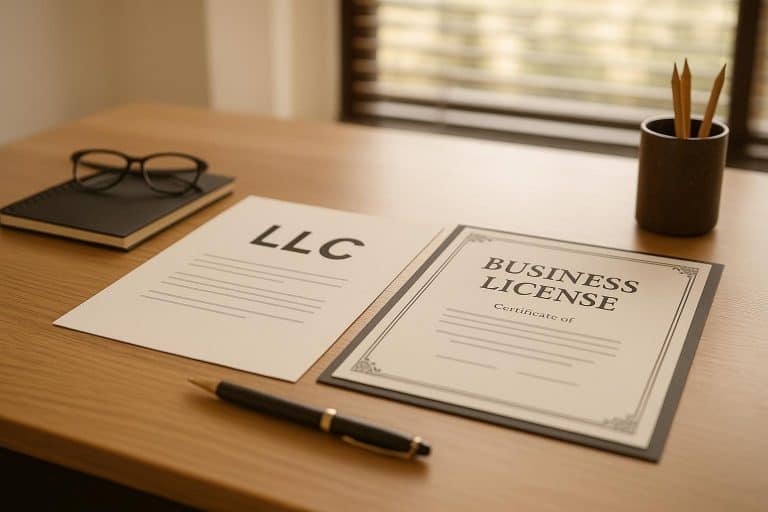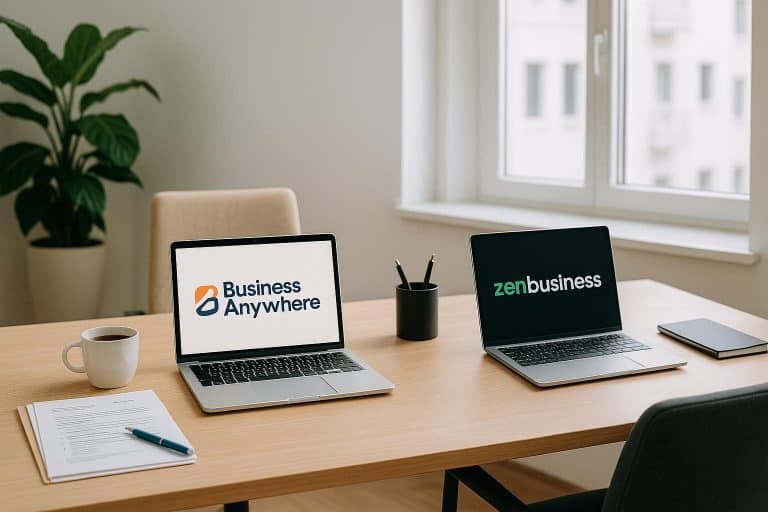What are the address types to know for your LLC? Business, physical, and mailing addresses are essential for companies running remotely or through a brick-and-mortar building.
They’re binary numbers representing where you receive mail and packages for efficient business operations.
Understanding their differences is crucial as you’ll learn which to adopt in a particular situation.
Are you a new entrepreneur looking to start a business but don’t know the LLC’s address types ideal for the establishment? Join us as we discuss each more in-depth to improve your knowledge.
What is a Mailing Address?
A mailing address, also called a postal address, is where you consistently receive a business mail delivery. The U.S. Postal Service sets standards, such as your physical location or PO Box.
A PO Box is a mailing address that keeps your location private and ensures your messages get to you.
The mailing address could be your state home or where you operate. It’s ideal if you’re starting an online business or have no physical establishment to receive mail.
For example, if you’re running an online store from home but want your business and mailing address different.
Consider getting a mailing address before scaling your business, as it ensures privacy and provides an extra layer of protection. It also helps you filter personal from business mail. Your business and mailing address is different, but you can use both.
What is a Business Address?
A business address is the official location of your company and its premises. It’s where your entity operates and is usable for official communications with the government. You can also use it on all official forms for the state and the public.
Options to use include the following:
- Home address
- Virtual office
- Virtual mailbox
Your home location can be a business address because it’s free and convenient. Since you can use it for communications, marketing, and business purposes, adopting your private residence isn’t advisable.
Stalkers and hackers might infiltrate your personal information, using it maliciously. You also risk privacy invasion from unhappy customers since your address is with your business name.
Using a virtual office as your company address for mails is excellent. It provides office-related services like phone services, private offices, and meeting rooms. It gives you access to a physical office without the costs associated with administrative staff and a long-term lease.
Although it’s more economical than renting a brick-and-mortar building, there are a few downsides. It’s pricey compared to other options and doesn’t give you complete control over office hours.
A virtual mailbox provides a middle-ground business address with maximum privacy protection. It also lets you receive mail and hold packages for the long term, giving you a professional look.
You can sort and scan incoming mail and get a digital copy with a virtual mailbox. You don’t have to set up an office space or hire assistants. It also saves you the cost of purchasing computers, furniture, and other helpful equipment associated with getting a physical address.
A virtual mailbox provides privacy to online business owners as it differs from a residential location. A remote company address attached to a commercial building helps you build customer retention and trust, which bolsters your company’s reputation.
What is a Physical Address?
Federal and state governments define a physical address as the location to find an organization or individual.
It’s one of the address types to know for your LLC that’s identified in binary number form. It’s usually attached to residential or commercial buildings such as offices or homes.
A physical address is necessary for opening a business bank account. Financial institutions request proof of address and verify the information to ensure it meets federal regulations. If you form your limited liability company (LLC) at home, your ideal option is a physical address.
When you have no home address in your state of LLC formation, consider buying or renting a physical space with a commercial address. However, it’s a pricey option requiring insurance, utilities, and mortgage payments.
Why Does an Address Matter For a Limited Liability Company (LLC)?
All LLCs must have a selected registered agent to receive legal correspondence and service of process from the Secretary of State. Attaching them to a physical address is required, as they’re available for delivery during regular business hours.
Registered agents designated address matters because it’s public information. Anyone searching for your LLC name can access the data to avoid unnecessary mistakes during delivery.
You or the business can become a designated registered agent for the company. But you must be available and at the location during work hours, which might affect the operations.
You cannot take breaks or have a flexible schedule during regular working hours acting in this capacity. So consider hiring one to improve business activities.
Wrapping up
Now that you know your LLC’s address types, it’s best to understand their differences and uses. Extensively research the advantages and disadvantages of each before using it for your company. Remember that your mailing address is where you receive the organization’s mail.
Your business address is where you conduct business operations, while physical locations have a building attached. A registered agent address receives correspondence for your Limited Liability Company from the Secretary of State.
After reading through address types to know for your LLC, consider talking to a legal attorney before initiating the process to avoid unnecessary liabilities.








